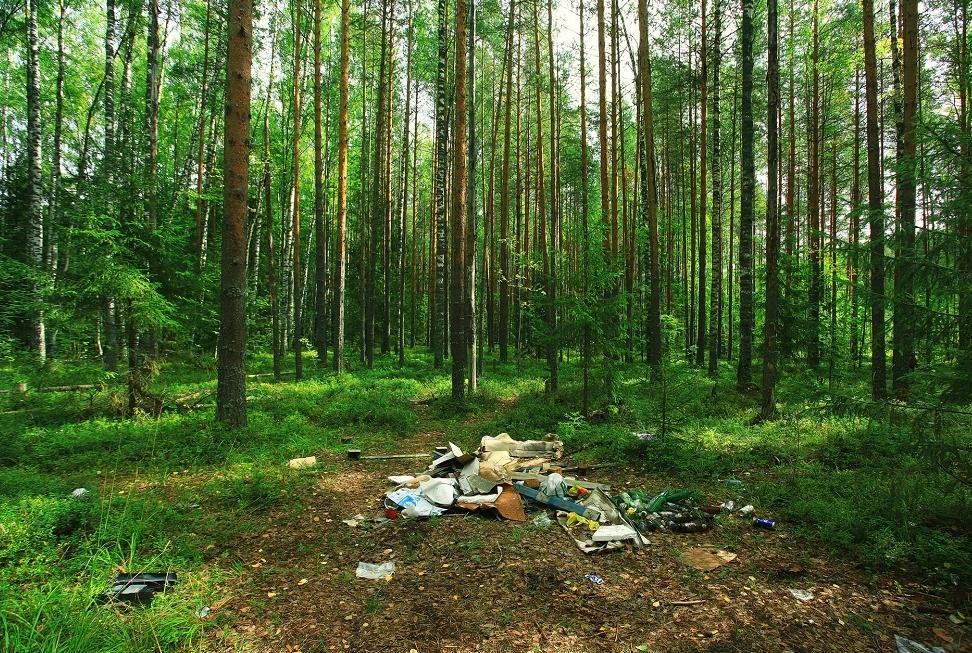Leave no traces on the confession: we decided to publish some of the stories that tourists told us. And they ask for forgiveness. All stories are published without names.
Most campers and hikers try to travel as light as possible, sticking to the trail and trying to leave the campsites as they were before camping. But we all make mistakes sometimes, and anyone who says they’ve never lost a candy wrapper due to an accidental wind, broken branches, made fires right on the woods, washed dishes and taken baths right in a stream or river, forgot at the campsite plastic items – lies, don’t believe this man, we haven’t met the perfect backpackers yet, no matter how hard we try to adhere to the “7 principles of Leave No Trace. Everyone makes little mistakes from time to time.
But the article will not make small mistakes. We will publish stories for which these tourists are very ashamed. We listened to their confessions and brought repentance to appease their guilty consciences.
1 Confession: I dropped a crate of beer cans into a creek
“My friends and I drank a lot of cans of beer while camping by a creek in a national park. We left the empty bottles on the bank and went to bed. It rained heavily during the night, causing the creek to rise. I woke up to find that all the cans were swept away. We went downstream to find them, but without success. I feel terrible about it.”
Our advice:
Well, if one of the park staff or another tourist didn’t pick up those empty cans, they’re definitely still there. We will immediately reprimand you, having discovered another tourist sin – you violated the norm of 200 feet from the stream when placing a campsite. To avoid similar situations in the future, you should clean up all the trash before going to bed. I also want to inform you that in addition to polluting the stream, you could attract wild animals to your camp, for example Bears – they are very fond of beer, and I can smell your empty can. Drinking and the backcountry can mix, but do it responsibly. Your fun and joy should not become sadness and inconvenience for the wild hunters of the area and other tourists.
To atone for guilt and repentance: always clean up the garbage, not only behind yourself, but also the one that you find on your tourist route.
2. Confession 2: My dog chases deer and other wild animals:
“I like to let the dog off the leash. Usually well behaved, but sometimes chasing deer and other wild animals. Is this the natural order of things, or am I a bad owner and not raising my pet properly? It bugs me”
It is clear that dogs have natural instincts, maybe you have a hunting breed. If you want your pet to be happy and happy, then go to special dog parks.
But if you want to share the wonders of the wild with your pet, better rein it in. Some dog owners argue that dogs are made for stalking, and herbivores certainly could do with a little more exercise in places where there are no natural predators. Also, some puppies can safely get off the leash (where allowed) and if you know you can cancel the hunt with a whistle or command, your dog could be one of them. But if your best friend forgets his manners as soon as he catches a good smell, he may be in danger of committing a crime of passion – dogs sometimes catch their prey.
Even if your dog has dubious athletic ability, a hands-off strategy can lead to the spread of parvo and distemper to foxes, coyotes, and bears (and dogs can pick up distemper strains). In addition, the presence of dogs has been shown to stress some species so much that their populations are declining. One example is the bighorn sheep in the Catalina Mountains of Arizona.
3 Confession: I poured white gas into the Grand Canyon
“Last night in the Grand Canyon, I did a terrible thing. When I got to the bottom, I realized that I had packed a pound more fuel than I needed. I tried to give it away, but no one accepted. So, instead of going 4400 vertical feet with extra weight, I found a sandy strip away from the water and poured it out. I can’t stop thinking about this white gas that’s seeping, seeping, seeping towards the Colorado River.”
Most campers are guilty of burning too much fuel rather than throwing it away, but we still have some bad news for you: Studies show that the toxic effects of fuel pollution are greater in sandy soil than in dense soil, and are quite harmful to underground microbes. on which the rest of the ecosystem depends to break down debris and keep plant life thriving. The gas also contains carcinogens. However, if you dump the fuel at least 200 feet from the water, the sand will likely absorb and trap the toxins before they reach the river. And while your 20 fl oz of white gas could theoretically contaminate up to 120,000 gallons of water, in On average, about 100,000 gallons pass through the Grand Canyon every second. If a bunch of people followed suit, the cumulative effect could be much worse, but a single, isolated spill is a drop in the ocean (just don’t do it again).
If you were writing from the bottom of the canyon, we would ask you to scoop up the fuel-soaked sand and carry it along Bright Angel Trail. But you can make up for it: The next time you pass by an illegal fire pit, pick up all the ashes and take them out. (Ash isn’t harmful, but piles of it encourage site use and look unnatural.) Let every measured step remind you that a little exercise is better than a muddy landscape.
- Confession: I killed a skunk
I was camping in Pennsylvania when a skunk looked under my tarp. I ran away and he went on, but he kept coming back. The fourth time I threw some rocks to scare him off and hit him right, hurting him badly. I knew he wouldn’t survive, so I did the only thing I could think of in the face of his suffering and landed a fatal blow with a rock. I still feel terrible. What should I have done differently? –
Sorry, no embellishment: this is terrible. This skunk associated you with food or salt; entering your hideout was like going to a restaurant. This is a common behavior for small mammals such as skunks, raccoons, and marmots, and as you well know, they can be assertive. You didn’t make a mistake trying to scare her off, but that’s little consolation for a dead skunk. Keeping the camp clean is the first step to avoid unwanted visitors. But if the creature still smells you, try a non-lethal method like hitting a pot. If all else fails, a marine-grade air horn will go off. It may seem silly to wear something like this in remote areas, but it’s easier than regret.
Looks like there was an element of bad luck in the game, so we’ll take it easy on you. Carry a horn with you as punishment and clean up the micro-litter at every campsite you stay to break the link between campers and food. If the salty sweat on your shoulder straps, pole handle, or boots is overwhelming, hang your gear from a tree.
5 Confession: I pooped on the trail
“I was on a solo hike a few weeks ago and I really needed to go. There was simply no time – he crap himself right on the trail. I feel very bad”
We’ve all been there. We go out into the woods to follow one call of nature, and sometimes another, before we can do much more than give up.
Since you write, we assume that you fled the crime scene without getting rid of the evidence. We know trowel rule number one as well as you (trowel touches dirt – only dirt), but this is an emergency. Dig a hole 6 to 8 inches in diameter as far from the trail as possible (recommended minimum is 70 paces; make sure you are just as far from water sources). If you need to, get creative with leaves, sticks, or rocks to make the move (plastic bags work too, but pack them up).
If you don’t do this, you run the risk of living beings getting into your remains (terrible), other tourists stumbling on or in them (super terrifying), or surface runoff could wash your waste into your drinking water, contaminating it (super rough and unhealthy).
If someone passes by during your operation, blame the dog and yell loudly at irresponsible pet owners. And if you find that this happens to you often, we recommend the WAG bag. And maybe a trip to the GI doc.
Your repentance
Trail dumps are a pretty big problem, so we’re arranging a volunteer day at your local trail. Sign up, think about how much you appreciate the fragrant path, and from now on responsibly make your life easier.

